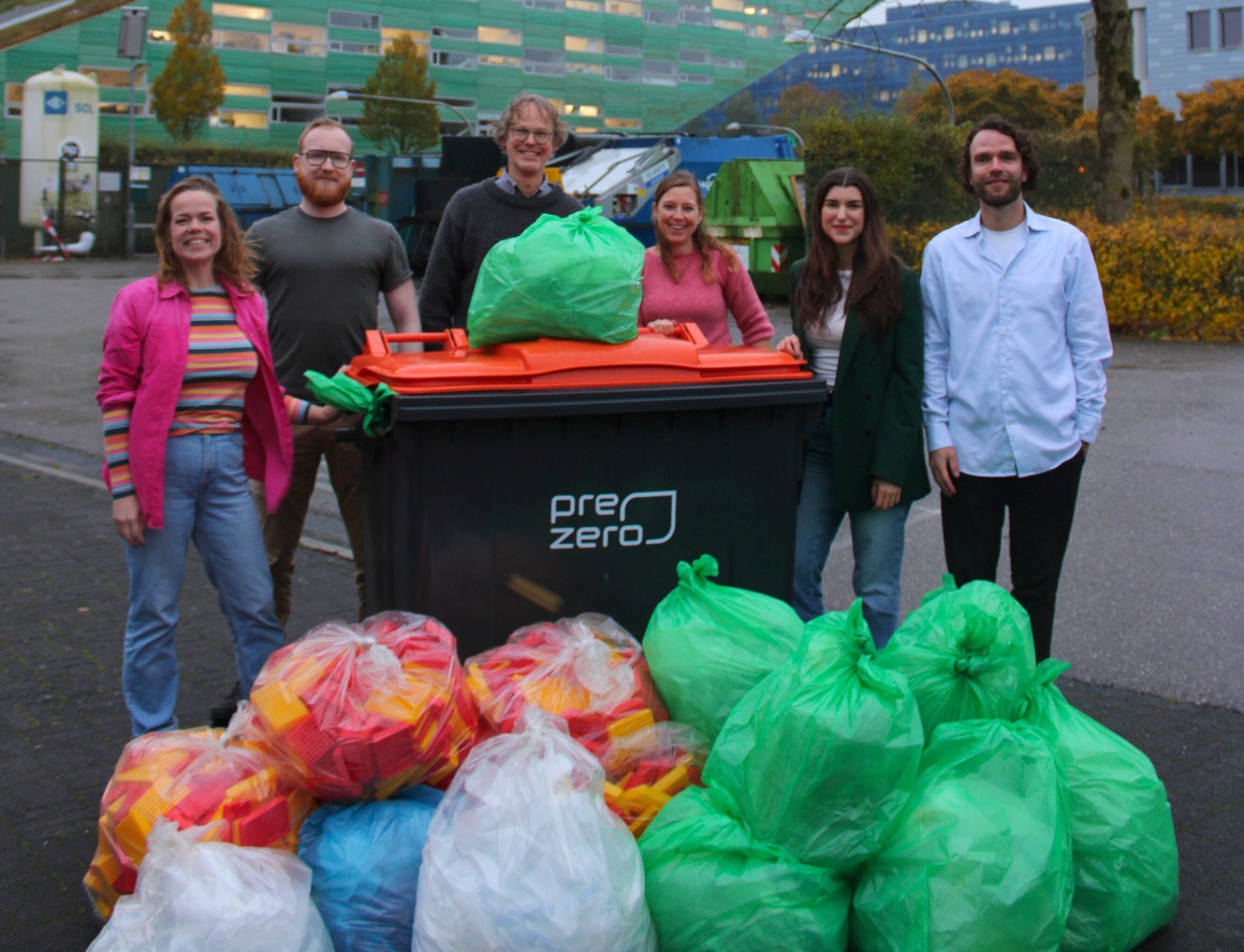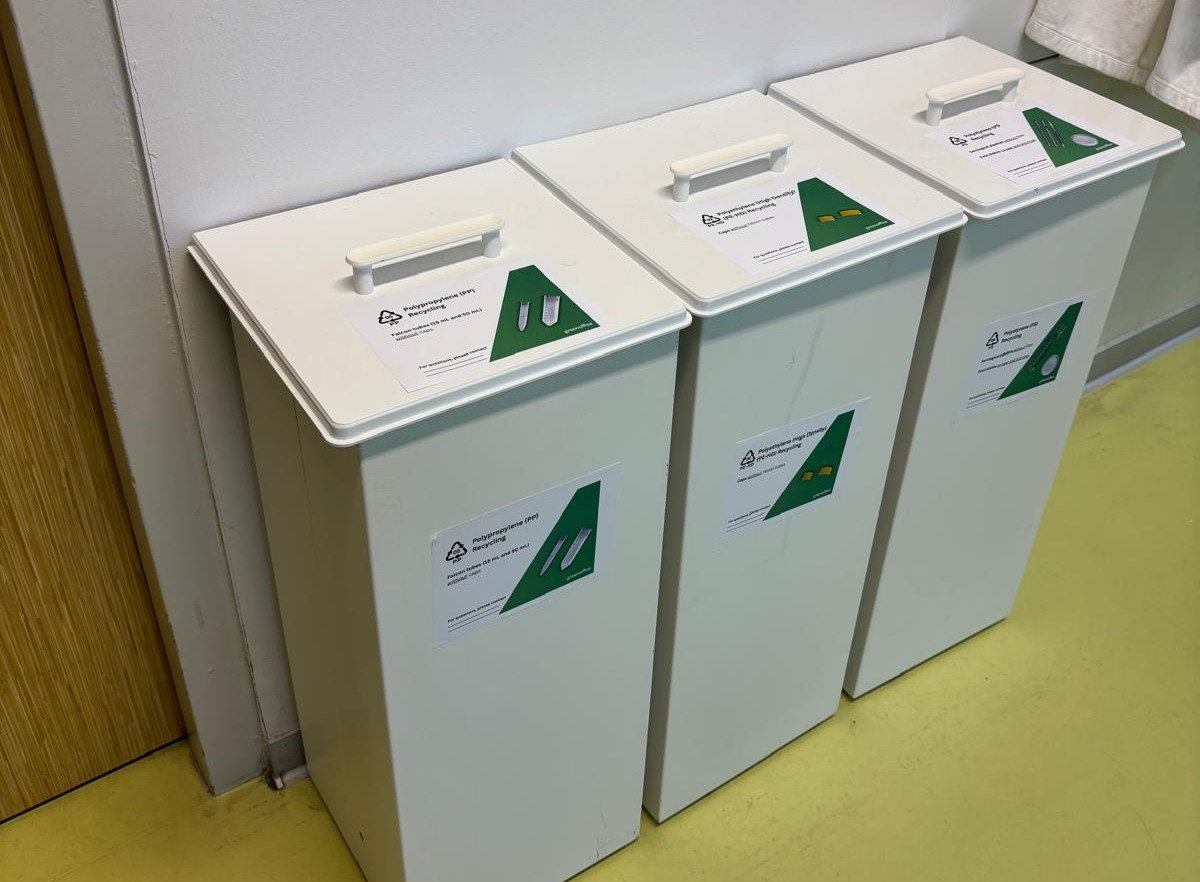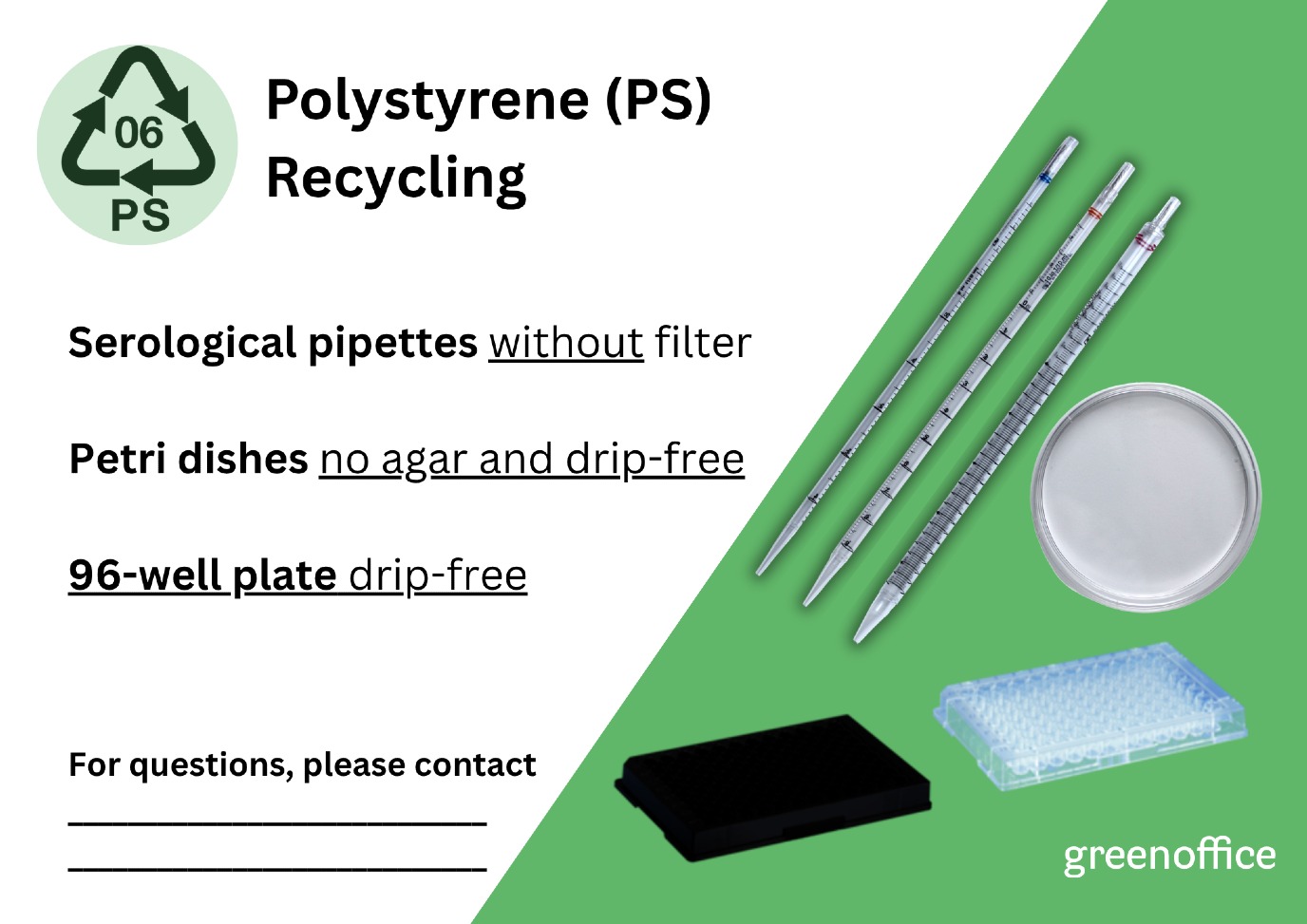UG launches first pilot for lab plastic monostreams recycling in the Netherlands
Until recently, like everywhere else, all laboratory plastic from the University of Groningen (UG) laboratories was incinerated after use. Because lab plastic is usually contaminated, it was therefore always considered unsafe for recycling, even after sterilisation. The Green Labs group of the Faculty of Science and Engineering (FSE) and the Green Office have joined forces to solve this challenge, making the UG the first university in the Netherlands to recycle plastic monostreams.

Safety first
There’s a good reason why lab plastic is normally always incinerated. As a university, we have safety agreements with our waste processor. If there is a possibility of a batch of plastic being contaminated, it is incinerated as a precaution. 'Safety is our first priority', says Nils Elzinga, coordinator of the UG Green Office. This meant that the first task was to consult with the RUG’s safety officers to address any safety risks. Chemically contaminated plastic quickly proved to be outside the scope, this made the focus shift to biologically contaminated plastic, clean plastic, and packaging materials.
What are plastic monostreams?
Plastic monostreams are waste streams consisting of a single type of polymer, enabling high-quality recycling. In the pilot, three types are collected separately: PP (polypropylene), PS (polystyrene), and HDPE (high-density polyethylene). High-quality plastic starting materials from these streams are used to make new items such as buckets, crates, flower pots, furniture, planters, cups, and suitcases.
Sterilizing biologically contaminated plastic
To clean biologically contaminated plastic, it must be autoclaved. This method sterilizes the plastic using pressurized steam above 100°C, killing all bacteria, viruses, and other spores. The advantage: this process was already standard for biological waste, making integration into laboratories workflow straightforward and safe.
Logistical challengesand creative solutions
Once the safety of the collection was guaranteed, the next challenge arose: the plastic had to be collected separately to ensure high-quality recycling. This required waste bins, a temporary storage space, and outdoor containers. Since the Single-Use Plastics (SUP) legislation (European regulations on disposable plastics) came into effect in 2024, the university no longer uses bins for coffee cups. The sustainable solution: these bins could be repurposed for collecting plastic monostreams. To meet safety requirements, the Green Labs group designed custom lids for these bins.

Modular stickers
Another challenge is that all labs use different plastic items. Luckily, these multiple items are made of the same polymer and can be collected together. In the onboarding process, labs fill out a form to indicate what the most frequently used plastic items are in their lab. Then, the Green Labs team groups these items and makes modular stickers for each participating lab.

Working with colors
To make the collection and separation process clear, each monostream was assigned a distinct colored bag. This allows Facility Support to easily identify the bags to be sorted and distinguish those from the normal autoclaved waste. The different colored bags with monostreams are then placed in the appropriate outdoor container temporarily until the waste management company (PreZero) picks them up.
A first in the Netherlands
With this pilot, the UG takes the lead among other Dutch universities to collect and recycle plastic monostreams actively used in laboratories at the Faculty of Science and Engineering – an important step toward circular lab practices. The team is currently scaling up the pilot in more biology labs across the faculty and will evaluate the results together with all stakeholders involved.
'If successful, this approach can serve as a blueprint for research institutions across the Netherlands making separating and recycling monostreams the new standard' says Alexandra Matei, Waste Subgroup Chair, Green Labs.
Want to join?
Does your lab want to join the pilot or you want to know more? Please contact greenoffice rug.nl.
This project is a collaboration between: the Green Office, Green Labs RUG FSE, Health Safety and Environment FSE, Arbomilieudienst, Facility Support, Facilitaire Organisatie en PreZero.
More news
-
15 September 2025
Successful visit to the UG by Rector of Institut Teknologi Bandung
